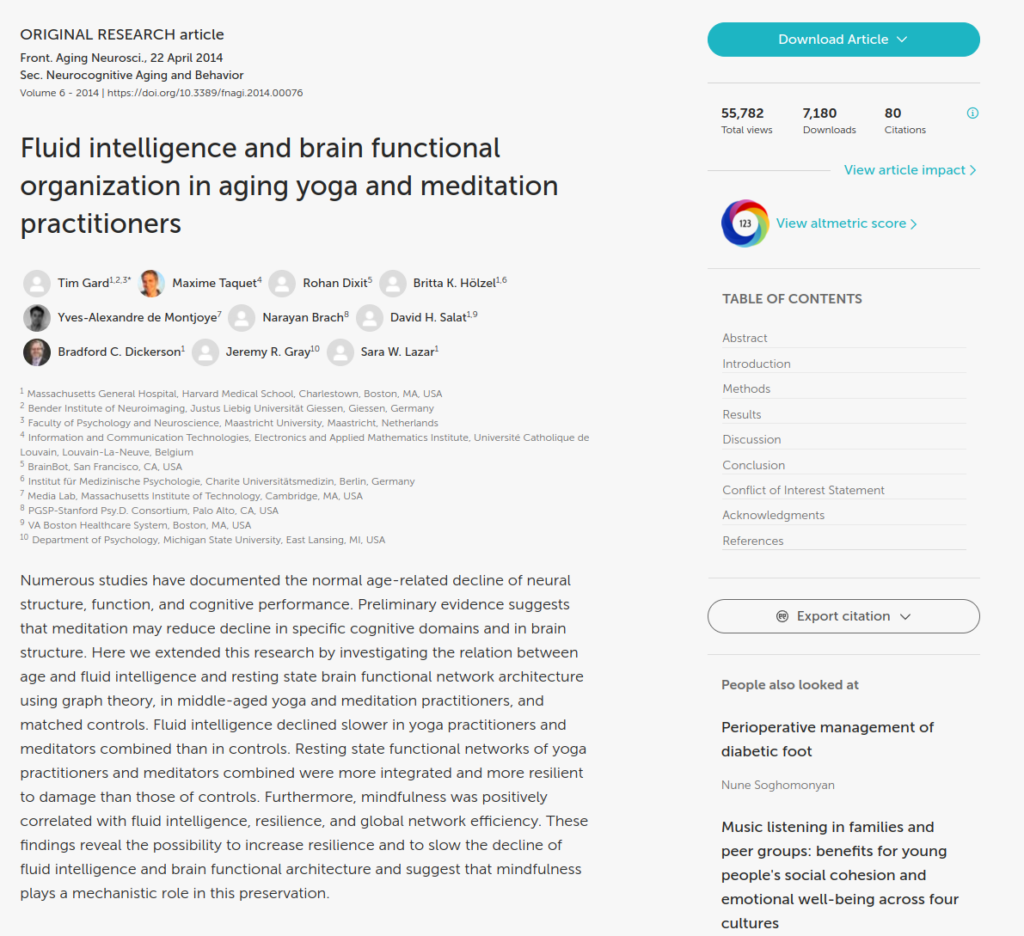Numerous studies have documented the normal age-related decline of neural structure, function, and cognitive performance. Preliminary evidence suggests that meditation may reduce decline in specific cognitive domains and in brain structure. Here we extended this research by investigating the relation between age and fluid intelligence and resting state brain functional network architecture using graph theory, in middle-aged yoga and meditation practitioners, and matched controls. Fluid intelligence declined slower in yoga practitioners and meditators combined than in controls. Resting state functional networks of yoga practitioners and meditators combined were more integrated and more resilient to damage than those of controls. Furthermore, mindfulness was positively correlated with fluid intelligence, resilience, and global network efficiency. These findings reveal the possibility to increase resilience and to slow the decline of fluid intelligence and brain functional architecture and suggest that mindfulness plays a mechanistic role in this preservation.
Fluid intelligence and brain functional organization in aging yoga and meditation practitioners
Publication
Frontiers in Aging Neuroscience
Volume 6 - 2014
Abstract
Web and Email Links
Related Listings
Journal
Journal for the Scientific Study of Religion
Clinical observations suggesting a relationship between spiritual experiences, life purpose and satisfaction, and improvements in physical health led to the development of an Index of Core Spiritual Experience (INSPIRIT). Data from 83 medical outpatients showed the INSPIRIT to have a strong degree of internal reliability and concurrent validity. Multiple regression analyses showed the INSPIRIT to be associated with: (1) increased life purpose and satisfaction, a health-promoting attit […]
Journal
Journal of Clinical Medicine
Stress is a term used to define the body’s physiological and psychological reactions to circumstances that require behavioral adjustment [1,2,3], and the relaxation response is a psychophysiological state that is opposite to that of the stress or fight–flight response [4]. A variety of mind/body techniques can be used to elicit a relaxation response and achieve the therapeutic effects associated with reduced blood pressure. For example, researchers at the Cochrane Review [5] investiga […]
Journal
Intelligence
High intelligence is touted as being predictive of positive outcomes including educational success and income level. However, little is known about the difficulties experienced among this population. Specifically, those with a high intellectual capacity (hyper brain) possess overexcitabilities in various domains that may predispose them to certain psychological disorders as well as physiological conditions involving elevated sensory, and altered immune and inflammatory responses (hype […]

